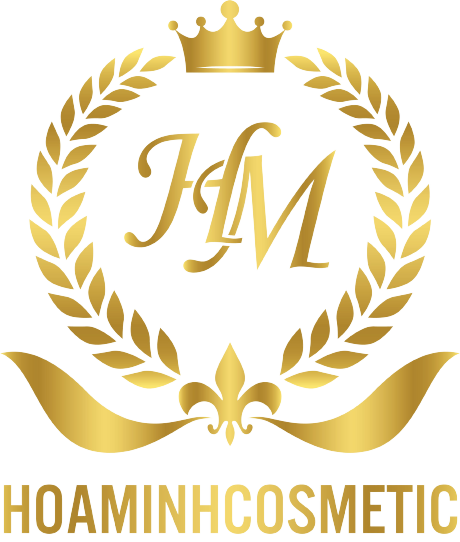What’s missing are certain key components like reporting, advanced analytics, and integration with third parties such as email marketing tools. While Salesforce is definitely the leader in terms of number of users, it’s important to note that it wasn’t the first company to offer CRM capabilities. Choose a CRM that offers easy integration with other applications. Integrating your CRM with other apps is one of the key benefits of opting for a CRM.
Consumers can avoid repeating themselves while interacting with new contacts since departments and channels are integrated. The next component of an analytical CRM is data mining — a catch-all term for the process of discovering patterns in large data sets. Later that day, a sales rep identifies that customer as a potential upsell.
It allows you to take and organize all your customer interactions and turn that into clear and useful customer data. If you can’t imagine what the advantages are of analytics and reporting in a CRM solution, you’re not thinking hard enough. Your business needs to keep the pulse on every aspect of its operations, from marketing https://www.xcritical.in/blog/analytical-crm-benefits-types-of-analytical-crm/ campaigns to sales lead management and beyond. Lead scoring is one particularly useful tool to show you which contacts are more likely to buy something. Other benefits are that you can manage your salesperson or support team’s daily activities to provide them with the best resources to help them do their jobs.
- This feature allows you to log all the touchpoints a customer or prospect has with your brand to create a 360-degree view.
- Spot areas of improvement in the service process, which is vital for customer retention.
- An analytical CRM will help you gather data, insights and information for you to take action and fuel business growth.
- The end goal of any CRM is to help you make better customer-focused decisions by unlocking the value of your customer data, therefore increasing your customer revenue.
- These metrics offer better control over a company’s sales and marketing efforts, as they can be used to measure success and the overall performance of an organization.
That means you should consider whether you want a product built for small businesses or enterprise companies before choosing one. Analytical CRM aims to extract actionable insights from raw data generated by various sources and deliver them to decision makers who can take appropriate actions based on these insights. Analytic CRM provides real-time reporting and dashboards to show trends over time and identify areas where improvement is required. For instance, an agent working in a call center will have all the information about the interactions with the customer over email. This will enable them to provide better solutions (without requiring customers to repeat themselves). Off-the-shelf software is likely to come with better support and may have less bugs.
This might include different departments of your organization (i.e., marketing, sales, customer reps, technical support), external stakeholders, vendors, suppliers, and distributors. This streamlines and automates sales and marketing as well as service processes. Its main role is to generate leads and then convert them into contacts within the CRM, capturing all details at the same time. CRM software helps businesses provide the best possible customer service to every individual.
Operational CRM Features
Its various modules will incorporate contact and lead management as well as sales forecasting. You should consider this option if you run a linear sales process focused on new business and prefer tasks to be automated. It will do all that you need when it comes to storing and organizing contacts and computerizing many of your sales and marketing actions. CRM is a kind of software that manages and records interactions with customers.
These types of CRMs can get difficult and technical to understand without dedicated staff, something not many small businesses can afford. It’s also important to be careful when entering information as inconsistent data entries can lead to skewed results. It’s helpful for those looking to make informed decisions when building business strategies, find out why certain approaches aren’t working or gain a deeper understanding of customers. Furthermore, the more data you have, the more important it becomes to consider using an analytical CRM. For example, you could use classification to create customer segments based on shared attributes. This could be anything from their age or which product they bought to how they found your company (Facebook ad, Google search, etc.).
Basic CRM functionalities include lead management, automation tools and dashboards for tracking metrics. However, depending on how your business operates, you may require a more specialized CRM to operate at maximum efficiency. Nurture and grow your business with customer relationship management software. A data warehouse is a type of database incorporated into many analytical CRMs. It provides one of the most effective systems analysts can use to collect, integrate, and prepare customer data for analysis. HubSpot is an all-in-one CRM platform meant to align internal teams, pull meaningful insights, and report on growth opportunities.
A typical scenario is that your company already utilizes another CRM but wants to upgrade its existing system to a newer version. If you think this sounds familiar, then you should know that many times, upgrading these platforms comes with hefty price tags attached to it due to licensing fees and maintenance contracts. Generally speaking, operational CRMs tend to be simpler, whereas analytics CRMs usually require additional training. Collaborative CRMs are great for teams, especially those with members scattered across several locations.
With more ways to research products and make purchases, the buyer’s journey has grown in complexity. And for businesses selling lots of products to multiple audiences, the difficulties of managing it all are even more notable. The most important thing about any CRM is right there in the first word—it’s about customers.
Analytical CRM
Operational CRM streamlines the business process between departments like marketing, sales and service. Analytical CRM uses data to provide business insights using clean reporting. https://www.xcritical.in/ And while some basic CRM solutions include modules and tools to do all the various kinds of CRM work, one should familiarize oneself with the different kinds of CRM solutions.
It forms the foundation of business intelligence tools, which let you slice and dice data sets so you have the knowledge needed to take action. Think of it as a way to collect, access and organize all the data generated by every department that interfaces with your customers. Once you have the data in a central repository, you can run analysis and generate reports. An operational CRM will let you set up complex email campaign sequences. Once you’ve built the campaign, everything runs on autopilot. This is possible thanks to event-based marketing, where each new event in a lead or customer’s journey triggers a reaction from the system.
The metric identifies the time between the moment when a prospective customer is identified to the time the sales process is closed. This helps accelerate the sales cycle of a business by identifying potential problems. This is an important metric to monitor for companies offering subscription-based services that require customers to renew their contracts periodically.


